If you’ve been living under a rock, you may have no idea who Joe Wicks (A.K.A The Body Coach) is. But if you haven’t, you will be very much aware of how he has taken the health world by storm with his quick and easy recipes. In amongst the many health and fitness advisors out there, Joe Wicks is one that I love to follow. He specialises in writing recipes for healthy meals, that don’t encourage fad diets or restrict us with what we want to eat.
Having a go myself!
Because of this, I decided to follow one of his recipes and film it for you all to see! I was actually really pleased with outcome, although it definitely didn’t take 15 minutes as Joe Wicks claims. Since writing this blog, I have been researching more and more into the reliability of those who give health and fitness advice, and often feel worried about who to trust. Yet, in my opinion, Joe Wicks doesn’t enforce a way of eating, but simply offers out his recipes that allow for a healthy diet, that isn’t too strict. He never cuts out any particular food group, as some ‘clean eating’ gurus often suggest. He also recently admitted to having a ‘mega binge’ on a Facebook live video for all of his followers to see! I found this really interesting, as it is so often assumed that health gurus like Joe Wicks always eat perfectly, and never have days where they eat badly. Yet his confession showed that social media portrays only a small part of someones life, and a part that can often be distorted. It’s so easy to present yourself on social media in a certain way, masking the reality of how someone lives. Although not many people will want to share negatives in their life on social media, it is too easy to forget that behind every social media account is a person, who has bad days too. I personally even have an issue with idea of a ‘cheat’ day. The connotations behind ‘cheat’ for me, seem negative and something that shouldn’t occur, but no one should feel guilty if they don’t eat in a particular way on any given day.
The recipe was easy to follow, and the ingredients weren’t expensive at all. After demolishing my plate I felt satisfied that I had eaten well, and full to the brim so wouldn’t have eaten more – a perfect combination!
Ingredients
If you’d like to follow the recipe, make sure you have all of the ingredients below – they allow enough for two people!
2 Chicken Breast, 230 grams of sweet potato, 1 egg yolk, 1 tomato, 35 grams of mozzarella, 100 grams of breadcrumbs, cajun spicing (use as much as you like, down to preference!) 2 ciabatta buns, and finally a handful of rocket!
Take a look at the video below, and even try out the recipe yourself!
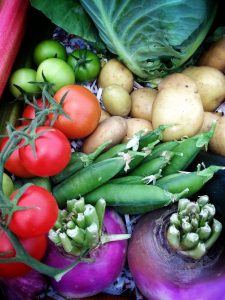 hy eating tips that she offers out. On Instagram she has just recently hit 1 million followers, who all get the chance to enjoy her aesthetically pleasing pictures of her food creations. As she admitted in the documentary, the pictures she uploads take time and effort, as she makes them ‘look pretty’. There is no doubt that ‘Deliciously Ella’ has now become a brand, rather than just simply an individual offering
hy eating tips that she offers out. On Instagram she has just recently hit 1 million followers, who all get the chance to enjoy her aesthetically pleasing pictures of her food creations. As she admitted in the documentary, the pictures she uploads take time and effort, as she makes them ‘look pretty’. There is no doubt that ‘Deliciously Ella’ has now become a brand, rather than just simply an individual offering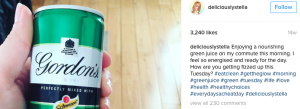
 . Yet, there are individuals out there who are so body conscious, they would do anything to change this, and this is where ‘fad diets’ can be really detrimental. An example of one of the ridiculous diets I found online was the ‘Cotton Ball Diet’. This diet consists of consuming cotton ball’s that are soaked in liquids, such as juices or smoothies. As soon as I read this, I cringed at the thought, and to think that people could be fooled by doing this made me feel worse. The so called ‘diet’ claims to make those who do it feel full, without gaining any weight, as the cotton ball dissolves in the stomach. I researched in to the health risks that this diet induced and found that the diet not only can cause choking and malnourishment, but includes the risk of the intestinal tract becoming blocked, thus causing damage to the internal organs. Clearly, this diet is extremely threatening to our health, yet individuals are still following it due to the craze of ‘fad diets’ on the internet.
. Yet, there are individuals out there who are so body conscious, they would do anything to change this, and this is where ‘fad diets’ can be really detrimental. An example of one of the ridiculous diets I found online was the ‘Cotton Ball Diet’. This diet consists of consuming cotton ball’s that are soaked in liquids, such as juices or smoothies. As soon as I read this, I cringed at the thought, and to think that people could be fooled by doing this made me feel worse. The so called ‘diet’ claims to make those who do it feel full, without gaining any weight, as the cotton ball dissolves in the stomach. I researched in to the health risks that this diet induced and found that the diet not only can cause choking and malnourishment, but includes the risk of the intestinal tract becoming blocked, thus causing damage to the internal organs. Clearly, this diet is extremely threatening to our health, yet individuals are still following it due to the craze of ‘fad diets’ on the internet. ‘Sleeping Beauty Diet’
‘Sleeping Beauty Diet’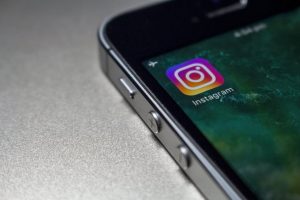
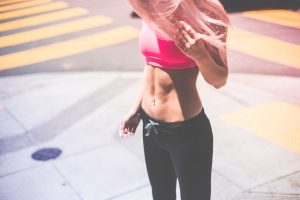 I try to focus on most, and I feel this outlook is often masked by social media. Emily McMullin who I mentioned previously, took to deleting her Instagram account completely, due to the damage it was causing for her wellbeing. If a social networking site is causing stress to young people, is it really that safe? Should Instagram have some tighter regulation? This is undeniably a problem zone for the site, but it’s also something they have little control over. Fitness and wellness bloggers mean to promote a positive message, so therefore they aren’t necessarily doing anything wrong. Yet it is obvious that some accounts are having a negative effect on young people, as they are so obsessed with new diet crazes, they lose focus on the importance of being happy, as well as healthy.
I try to focus on most, and I feel this outlook is often masked by social media. Emily McMullin who I mentioned previously, took to deleting her Instagram account completely, due to the damage it was causing for her wellbeing. If a social networking site is causing stress to young people, is it really that safe? Should Instagram have some tighter regulation? This is undeniably a problem zone for the site, but it’s also something they have little control over. Fitness and wellness bloggers mean to promote a positive message, so therefore they aren’t necessarily doing anything wrong. Yet it is obvious that some accounts are having a negative effect on young people, as they are so obsessed with new diet crazes, they lose focus on the importance of being happy, as well as healthy.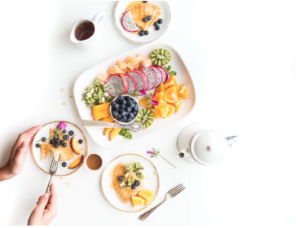 , is worrying when considering how individuals without correct nutritional knowledge are giving advice and diet tips to others. Some nutritional advice that can be found on the internet is so bizarre, that it has actually become dangerous and caused health problems for some. In a later blog post, I am going to be discussing some of the ridiculous diets that can be found online, and how they can effect our health. To help try and prevent incorrect information being shared on the internet about what the ‘perfect’ diet is, a petition has been created by Harriet Smith, who is a student dietician, pushing for change within the community. If enough people sign the petition, it could call for a change in the law, meaning consumers would be protected from being given incorrect information about their health, and the way they should eat. A common tip that can be found online, is advice to cut out a food group. This is not necessarily extremely bizarre, but according to Harriet, it can cause us to start craving that food group, leading to a dangerous restriction, or binge eating. Something that may not seem such a big deal, may actually lead to bigger health risks. Also, the term ‘clean eating’ that is so often used across the internet, is negative in itself. Those food’s that aren’t as ‘clean’ as others are therefore made to look bad, when really they may not be as bad as we think. Arguably, all food is good for us, as long as we maintain a balanced diet. Yet with the clean eating craze, this enforces a diet that isn’t balanced.
, is worrying when considering how individuals without correct nutritional knowledge are giving advice and diet tips to others. Some nutritional advice that can be found on the internet is so bizarre, that it has actually become dangerous and caused health problems for some. In a later blog post, I am going to be discussing some of the ridiculous diets that can be found online, and how they can effect our health. To help try and prevent incorrect information being shared on the internet about what the ‘perfect’ diet is, a petition has been created by Harriet Smith, who is a student dietician, pushing for change within the community. If enough people sign the petition, it could call for a change in the law, meaning consumers would be protected from being given incorrect information about their health, and the way they should eat. A common tip that can be found online, is advice to cut out a food group. This is not necessarily extremely bizarre, but according to Harriet, it can cause us to start craving that food group, leading to a dangerous restriction, or binge eating. Something that may not seem such a big deal, may actually lead to bigger health risks. Also, the term ‘clean eating’ that is so often used across the internet, is negative in itself. Those food’s that aren’t as ‘clean’ as others are therefore made to look bad, when really they may not be as bad as we think. Arguably, all food is good for us, as long as we maintain a balanced diet. Yet with the clean eating craze, this enforces a diet that isn’t balanced.